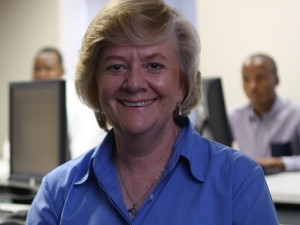Johannesburg, 29 Sep 2016

SA is facing two intertwined challenges that are clearly impacting on the country's ability to drive its economy forward. Firstly, it has one of the worst youth unemployment problems in the world. Secondly, the majority of newly qualified graduates are unprepared for the workplace.
"Universities teach students the theory, but don't provide real world experience, meaning that graduates find themselves unprepared for the workplace," says Brigitte Kruger, Learning and Development Specialist at SAS South Africa.
"This is where internships enter the frame, as they tackle both challenges. Not only do they offer opportunities for graduates to gain practical experience in their field of study, but they also measurably improved the interns' chances of obtaining full time employment - either at SAS, or with one of our partners or customers," she says.
SAS is well aware of the challenges facing the South African economy and, in particular, the struggles young graduates have to contend with. This is one of the reasons it launched the internship programme in 2012.
"The graduates who are selected join the programme for a 12-month period, during which they are trained to become consultants. Generally, we take in six to nine graduates at a time. They need to meet the criteria we demand, including having a bachelor's degree in computer science, statistics, analytics, risk or economics, as well as being able to demonstrate an ability to cope with pressure," states Kruger.
"Generally, they are not particularly familiar with SAS, so the internship is a significant learning experience for them. Because we understand that everything is new to them, we spend the first six months of the internship on intense training around SAS technologies and products. They have to pass the examination of the internationally-recognised SAS Certified Base Programmer for SAS 9 Credential qualification to continue with the second six months of their internship programme."
Kruger points out that an effective internship is about a whole lot more than simply upskilling and training the graduates in their relevant field. She indicates that there is a whole range of additional skills that these youngsters need to learn, to be effective in the working world.
"For example, universities may teach a lot of great theory, but they seldom teach any soft skills. For this reason, our interns also receive training in basic office skills, such as Microsoft Office, Business Communications and Presentation Skills."
"Then there are additional personal skills, such as diversity training and financial planning knowledge, not to mention basic organisational etiquette, like dress code and punctuality."
During the second six-month period of the internship the focus is on practical training. In this period, the graduates are placed with SAS partners or customers for on-the-job training and to gain practical work experience. "This is the part that goes a long way towards bridging the gap between academia and real work experience."
"At this point in the internship, it is about enabling them to move beyond the theoretical knowledge they have gained at university and helping them to develop genuine insight that is relevant to the industry they are working in.
"It is also a steep learning curve for them. For example, at university and during their SAS training, the data they work with is ideal and complete. In the real world, however, they discover that they not only need to understand the data, but also how to find it and manipulate it," adds Kruger.
That said, the interns tend to rise to the occasion, and many have been so effective that they have gone on to obtain positions either with SAS itself or with SAS customers and partners. "In fact, every single one of the group that concluded their internship during the last two intakes was offered a permanent position, which is clear testament to the quality of the internships we offer."
"Our partners and customers are equally impressed with the programme and the demand for interns has actually grown so much that we plan to institute a second internship course, which will begin every August. These interns will begin their training at SAS as the earlier group moves on to the on-the-job training portion of the programme. In this way, we can keep a steady flow of skilled graduates entering the market."
Kruger explains that SAS opted for a second draft of interns in August, rather than simply increasing the number of graduates brought on in February, because it was concerned about losing focus.
"By switching to two intakes, we double the size of the programme, while keeping the numbers in each course low, so we can still maintain our tight focus on training and upskilling. Furthermore, the success of this programme has led to us looking at ways to incorporate this internship into a broader African context, through a possible future Sub-Saharan African offering," concludes Kruger.
Share
